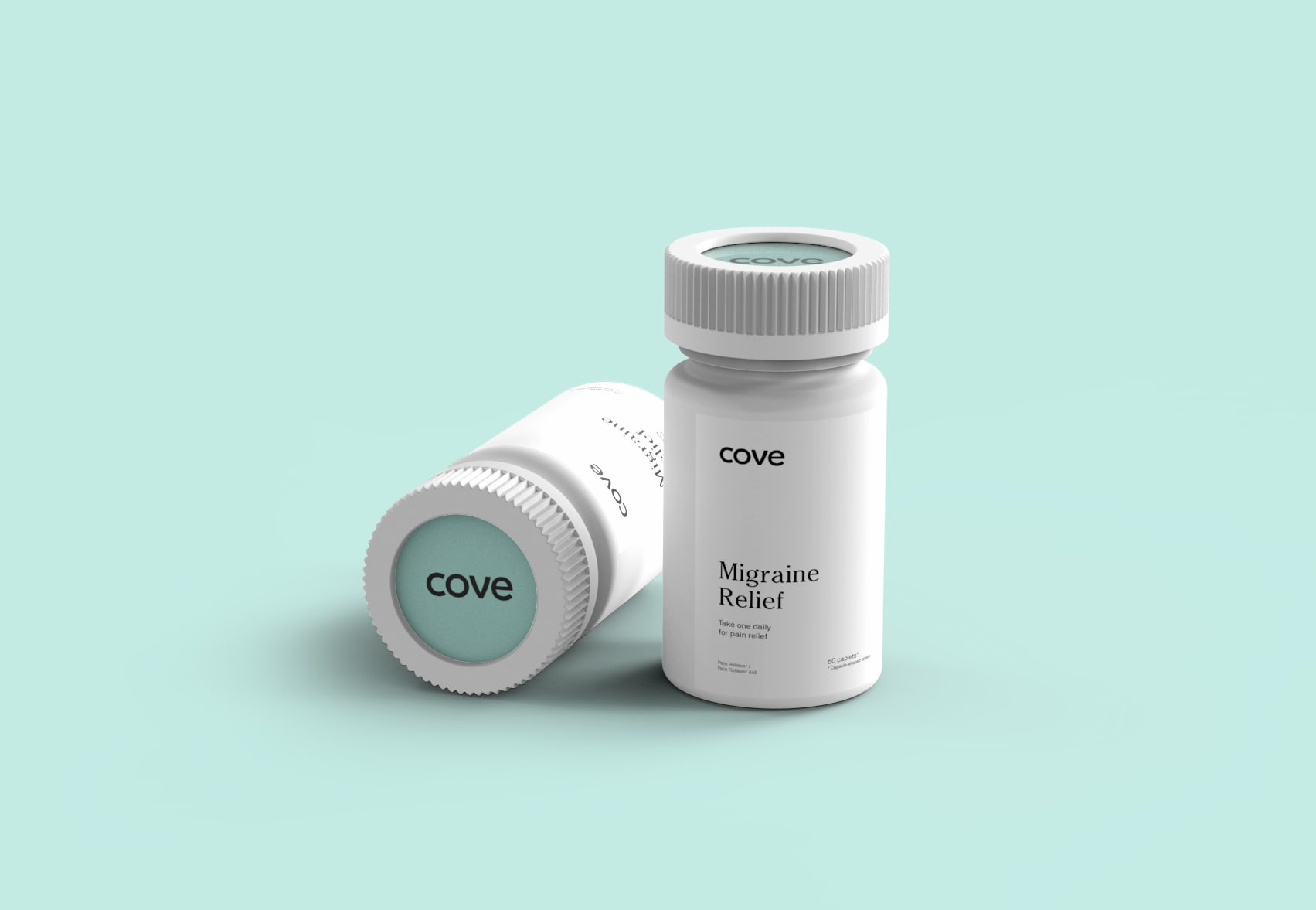What is Topiramate?
Topiramate (generic Topamax®) is a preventive prescription medication that’s proven to help reduce the frequency and severity of migraine headaches.
What will it do for me?
Topiramate, which is also an anticonvulsant medication, can, at lower dosages, act as a first line of defense when it comes to your migraine. Anticonvulsant medication is often used to control seizures.
How does it work for migraine?
Topiramate helps to calm and stabilize your brain’s electrical activity by correcting and calming the messages sent to the nerve signals. That means a lot less chaos for the chemicals in your brain. It can help:
- increase GABA, which helps prevent attacks
- reduce glutamate, which can cause overactivity in the brain
- block sodium ion channels in nerves
How do I buy topiramate (generic Topamax®)?
Topiramate is a prescription medicine so you’ll need to talk to your medical provider first. Get started today with a Cove consultation.
How should I take it?
While it depends on your migraine history and attacks, many people start taking topiramate at bedtime until they work their way up to a daily dose of 100 mg. Once they’ve hit 100 mg, they split your dosage between morning and night.
What should I be cautious of?
Topiramate is a prescription medication, so you’ll have to consult with your medical provider. Don’t forget to mention if you consume more than three alcoholic drinks daily, as alcohol can increase the risk of side effects.
Effects of topiramate can also cause some drowsiness, so nighttime consumption may be preferred.
Can I take topiramate with other migraine medications?
You can take topiramate with all acute and preventive medications that help with migraine and its symptoms.
What happens if I can’t take it right away?
If you forget a dose, take it as soon as you remember to help maintain consistent prevention. Luckily, topiramate is a long-acting medication, which means that missing a dose isn’t the end of the world (unless it happens often!).
Where should I keep my topiramate?
Keep it in a dry place at a cool room temperature.
Are there any possible side effects?
Topiramate is generally well-tolerated in doses for migraine prevention. If you do experience any side serious effects, you might notice:
- decreased appetite
- dizziness
- drowsiness
- fatigue
- difficulty finding your words or memories (don’t worry—you can reverse this by stopping the medication)
- nausea
- numbness
- stomach pain
- tingling
- weight loss (in some patients)
The information provided in this article is not a substitute for professional medical advice, diagnosis, or treatment. You should not rely upon the content provided in this article for specific medical advice. If you have any questions or concerns, please talk to your medical provider.
Topiramate is an oral medications used used to prevent migraine headaches. Call your medical provider right away if you have a fever or you do not sweat during activities or in warm temperatures. Patients who take this drug may be at a greater risk of having thoughts or actions of suicide. The risk may be greater in people who have had these thoughts or actions in the past. Call the medical provider right away if signs like low mood (depression), nervousness, restlessness, grouchiness, panic attacks, or changes in mood or actions are new or worse. Call the medical provider right away if any thoughts or actions of suicide occur. Very bad and sometimes deadly liver problems have happened with this drug. Call your medical provider right away if you have signs of liver problems like dark urine, feeling tired, not hungry, upset stomach or stomach pain, light-colored stools, throwing up, or yellow skin or eyes. This drug may cause very bad eye problems. If left untreated, this can lead to lasting eyesight loss.
If you would like to learn more about topiramate, please see the full prescription information here. You are encouraged to report negative side effects of prescription drugs to the FDA. Visit MedWatch: https://www.fda.gov/Safety/MedWatch/default.htm or call 1-800-FDA-1088.
If you’re experiencing a mental health crisis, please call 911 or go to your nearest emergency department. If you are contemplating suicide, call 911 or call/text the National Suicide and Crisis Lifeline at 988. These services are available 24/7.


